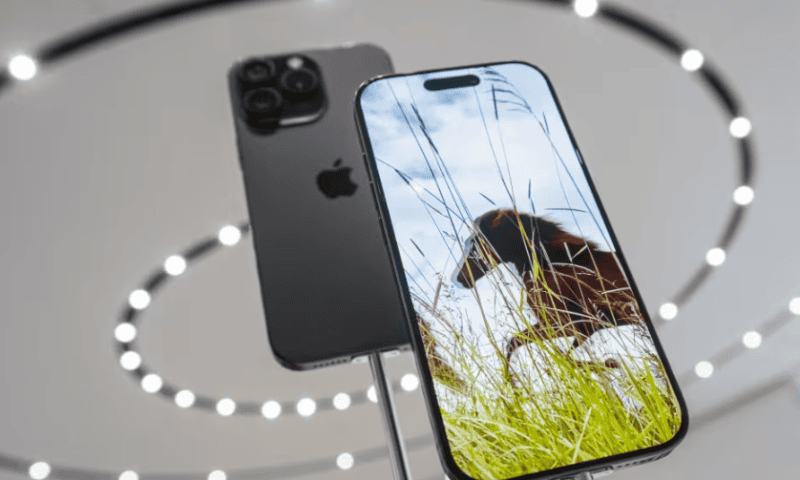Wall Street’s much-hoped-for price hikes on Apple Inc.’s new iPhone 16 line did not materialize at its launch Monday, but Chief Executive Tim Cook clearly hopes to drive more volume by not raising prices.
Still, investors initially were not pleased that Apple is launching its new iPhone 16 family at the same prices as the iPhone 15 line, including its top-of-the-line iPhone 16 Pro models. The iPhone 16 Pro will start at $999, while the iPhone 16 Pro Max starts at $1,199.
Apple’s shares AAPL 0.04%, which initially tumbled as much 1.9% when the prices for the new iPhones were unveiled near the end of its event, ended the day flat. That could have also been due to some disappointment over what some analysts are seeing as only a gradual rollout of its AI features.
“I don’t think Siri is a new interface that will change how we interact with the world around us — yet,” Forrester Research analyst Thomas Husson said in an email, referring to the demonstrated updates in Apple’s digital assistant. “However, there are clear signs that Siri is finally moving into becoming more of a digital agent leveraging on-device information and personal context to deliver new multimodal experiences and take actions on the user’s behalf.”
Some analysts who follow Apple have been counting on the addition of Apple’s AI, called Apple Intelligence, in the new iPhone line to lead to a new supercycle of revenue, with increased prices, after several quarters of declining revenue growth over the past couple of years. Apple is also lowering the prices of its iPhone 14 and iPhone 15 lines, to further drive sales.
“We are disappointed by the lack of high-end pricing changes and limited AI rollout details,” said Angelo Zino, an analyst with CFRA Research, in a note to clients. Apple showed a limited number of Apple Intelligence features during the launch, some of which were a repeat of features shown during the keynote at its Worldwide Developers Conference in June.
However, Amit Daryanani, an Evercore ISI analyst, did not expect prices to increase, and is counting on price hikes with the next-generation iPhone in 2025.
“Overall, Apple’s ability to deliver on the demonstrated features will dictate demand for this generation of iPhones,” Daryanani said in a note to clients. “We continue to think we are at the start of a very strong two-year iPhone cycle.”
Apple’s hesitancy to raise iPhone prices could be tied to a couple of factors, such as signs of a slowing economy and the fact that Apple Intelligence is still in its early stages. The company must have weighed all these factors, even as technologically, its custom semiconductors at the heart of the iPhone have skipped a generation and Apple has moved onto its A18 Bionic chip family.
At lower price points, Apple could conceivably make up revenue with higher volume of sales, but that demand remains to be seen. Customers are holding onto their iPhones longer than ever before. But Apple Intelligence may not be good enough yet to drive a big cycle, and consumers will again be weighing whether faster, lighter, better battery performance and an improved camera are enough for them to make an expensive upgrade.

